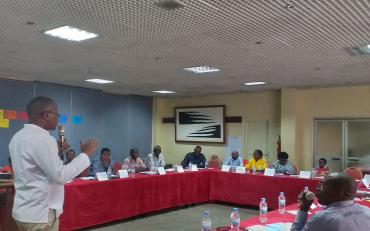From the 18 – 20 February, the second technical workshop on amplifying voices of persons with psychosocial disabilities happened in Kigali, Rwanda. The first ever such technical workshop in the East Africa region happened in Uganda in November 2018. More workshops are scheduled to happen in Kenya and Tanzania. Indeed, this is a journey that is geared towards ensuring that self-advocates in the East Africa region advocate within a human rights framework in line with the Convention on the Rights of Persons with Disabilities (CRPD).
- Read about the First Technical workshop
- Read about the Third Technical workshop
- Read about the Fourth and Fifth Technical Workshop
In Rwanda it was especially important as the country shall be reviewed by the CRPD Committee in March hence this was also an opportunity to ensure that the self-advocates’ knowledge on the CRPD was enhanced. This is crucial for their inclusion and participation in the process both of participating in the review process in Geneva, and going forward in advocacy for the implementation of the concluding observations from the CRPD Committee.
It is largely acknowledged that since the adoption of the CRPD in 2006, there has been no member State that has successfully adopted CRPD compliant approaches to their legislative frameworks and programs. This is reflected from the concluding observations to States, the General Comment on Article 12 and 19 of the CRPD and thematic reports on Article 19 and 14 of the CRPD which have consistently highlighted the manner in which persons with psychosocial disabilities continue to face abuse within the ‘medical model’ of “treatment”, families and community-based settings.
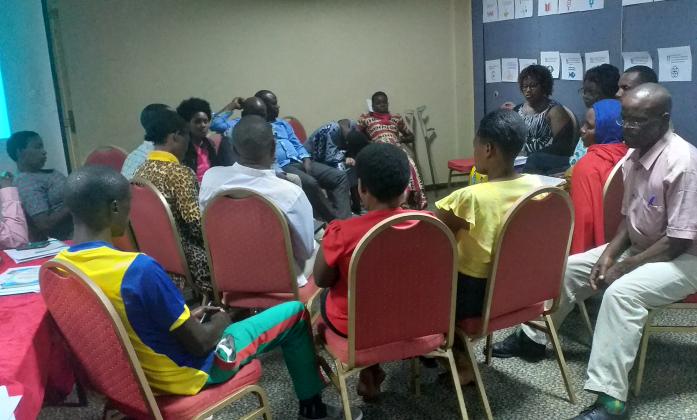
These workshops, therefore, being carried out in the East Africa region, are critical to ensure that the voices of persons with psychosocial disabilities are not only heard in national advocacy for inclusion but that they are able to challenge a culture of stigmatization and exclusion.
Michael Njenga, the lead facilitator representing World Network of Users and Survivors of Psychiatry (WNUSP) and African Disability Forum (ADF) noted that in addition to the CRPD, the adoption of the Sustainable Development Goals (SDGs) has been promising for the disability sector overall.

“It is critical that persons with psychosocial disabilities get involved to promote a CRPD compliant perspective on SDGs implementation and use the SDGs momentum to further implement CRPD,” he said at the sidelines of the workshop.
The workshop was carried out in an inclusive and participatory manner also with translation happening from English to Kinyarwanda in addition to participants working in groups and using role plays in the process of active learning.
On the first day, participants were introduced to the human rights-based approach of advocacy and also held discussions on the models of disability in an effort to challenge among other perceptions a notion that persons with psychosocial disabilities are ‘patients’ rather than rightsholders. Afterwards, in groups, they shared the situation of persons with psychosocial disabilities in Rwanda; key actions being undertaken by the government and the movement of persons with psychosocial disabilities at the moment and also highlighting successes in advocacy work in advancing their rights. This was a good foundation for the workshop as it was easy to link all that the participants had shared, their practical realities, with what the CRPD obligates governments to do, what had been done, and what more needed to be done.
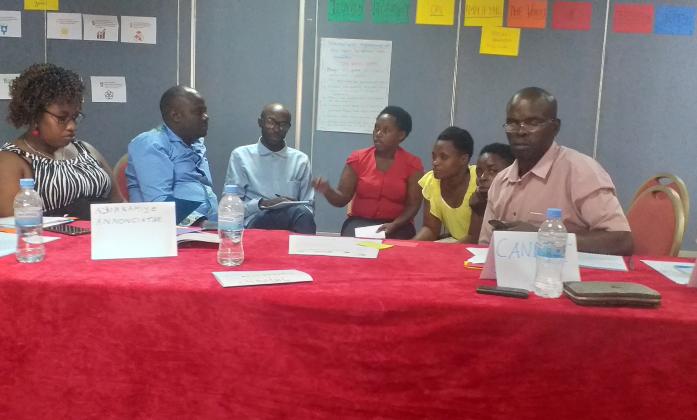
On the second day, participants were taken through an in-depth discussion of the CRPD. Rwanda ratified the CRPD in 2008 and it was evident that there is continuous need to strengthen its understanding and importantly to ensure that the leaders with psychosocial disabilities in Rwanda are included in the implementation of programs and policies meant to actualize the CRPD. The umbrella organization of persons with disabilities in Rwanda, NUDOR (National Union of Disability Organizations in Rwanda members of the umbrella organization), made available to the participants the CRPD in the local language, Kinyarwanda, which was critical in ensuring that the participants easily familiarized themselves with it.
Both in the first and second day participants worked in groups and used role plays on selected articles of the CRPD to highlight the core messages. These exercises were important in showing the extent to which the participants were getting acquainted with the CRPD. In their presentations, it was evident to see the barriers that persons with psychosocial disabilities face in communities including human rights violations, denial of rights such as accessing quality and accessible healthcare, access to employment among others.
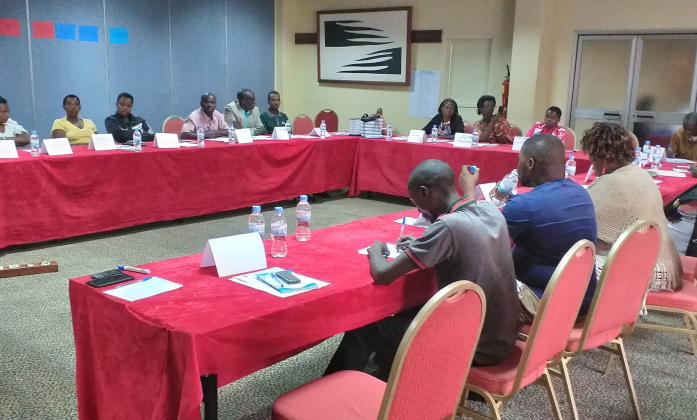
What also came out of the discussions was that there is a strong social fabric system enjoyed in the country. To use these strong social networks and the social capital in the country to create awareness on how families and communities should respect the rights of persons with psychosocial disabilities was emphasized.
On the third day participants were introduced to the agenda 2030 and the SDGs. Key discussions revolved around ensuring that in their advocacy, the self-advocates would ensure that SDSGs implementation was in line with the CRPD. They were able to make linkages between the CRPD and the SDGs. They were encouraged to deeply contextualize the discussions around SDGs implementation within their local realities.
The third day was also a moment for NUDOR to share their journey of drafting the parallel report to the CRPD Committee since Rwanda is coming up for review in March 2019. Additionally, the Kenyan and Ugandan counterparts present were able to share their experiences as their countries have already been reviewed and now they are working with their governments to implement the recommendations from the CRPD committee. Participants were also taken through the process of engaging with CRPD committee members in this process and also the concrete steps to ensure implementation and monitoring at the national level.
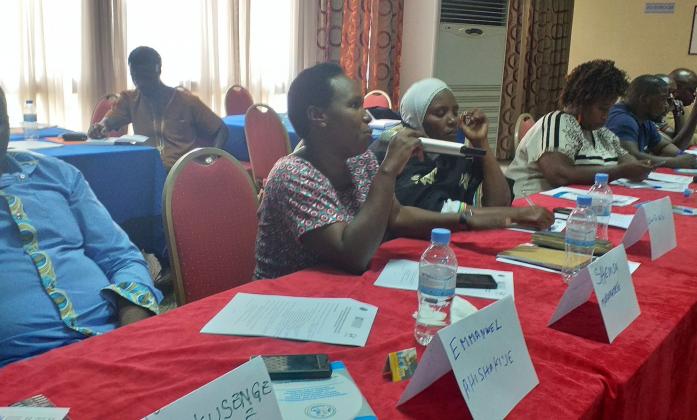
Government stakeholders and development partners who had been invited to the meeting on the third day also took time to share their mandate with the participants. Through this engagement the participants created connections on how to work together going forward.
“The workshop equipped the participants with skills to translate the generalities of the CRPD and SDGs in tangible strategic outcomes within their contextual realities,” noted Michael.
The success of the workshop was as a result of the key coordination among partners including support from NUDOR and the National Organization of Users and Survivors of Psychiatry in Rwanda (NOUSPR). It was supported by a grant to the World Network of Users and Survivors of Psychiatry through the International Disability Alliance (IDA) with the financial support of the Ministry for Foreign Affairs of Finland and the Department of International Development (DFID).
The workshop was co-facilitated by Bridge Alumni from Kenya and Uganda who are also persons with psychosocial disabilities. They received support from their Rwandese counterparts in NOUSPR. The facilitators included the lead facilitator Michael Njenga representing WNUSP and ADF, Daniel Iga Mwesigwa, board member WNUSP and Elizabeth Ombati, WNUSP and IDA Fellow.
‘It was an inspiring moment to equip us, persons with psycho-social disabilities with this important knowledge. A good number of us did not know about the UN CRPD; by the end all of us were able to articulately link the articles in the UNCRPD to the SDGs. However, being francophone interpretation from English to Kinyarwanda was time consuming and led to working extra hours to catch up. However still it stirred some activism and life to our organization NOUSPR. We are so grateful.’ (Participant).
